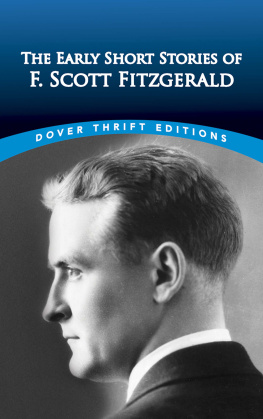Joanna Scott
EXCUSE ME WHILE I DISAPPEAR
STORIES
for my family
To rehearse the stars. Hold the railing! Dont fall!
What if we awake one day, all of us, and find ourselves utterly unable to read?
Vladimir Nabokov,
Pale Fire
I only call it a book because he called it that. He said it was the greatest book ever written, and he was sorely sorry he didnt have a copy to share with me.
He was the old man who had taken up residence in an abandoned encampment alongside the tracks. How long hed been there, no one could say. Sanitation workers found him one morning after a night of heavy snow. With his eyes hidden behind the frosted glass of his Wellsworth spectacles, his arms rigid on the chair rests, he gave the appearance that he would never move again. One of the workmen reached out and poked the figure, producing from him a sharp inhalation. Startled by this unexpected evidence of life, the men reacted by lurching backward, tripping over the gravel ballast, and falling into a heap, one on top of the other.
The stranger, obviously alive, said nothing. He didnt need to speak. He presided over the workmen like a judge, giving them the impression that within the span of a few seconds they had been found guilty and just as promptly pardoned, leaving them forever beholden to the stranger for their freedom.
Once on their feet again, they took turns asking the stranger questions. Who was he? Where was he from? Had he been left behind when the police cleared a band of vagrants from the area in December? The stranger refused to explain himself, though he did not resist when the sanitation workers lifted him by his elbows. Stiff as a mannequin, he let them carry him the few hundred yards to their truck. He made no complaint as the men fussed over him, lifting him into the passenger seat, draping him in a blanket, blasting the heat in the cab, and setting out in the direction of the hospital.
Once his spectacles had thawed, the pale green of his eyes glistened like pond water reflecting the noon sun. The black cashmere of his ragged coatItalian made, we would learn from its label, with fine flannel fabric for the pocket bagsgave off the scent of damp fur. Between the satin of the lapels peeked a red bow tie, neatly knotted.
At the hospital he was undressed and clothed in a gown, poked with needles, infused with saline, and then added to the duties of the financial counselor, who, failing to extract any useful information from him, not even his legal name, was pleased to learn from a nurse about the existence of a wallet.
The wallet, discovered in the inside pocket of his coat, was of a vintage metal kind. Inside were more than enough large bills to cover the patients hospital expenses. General care for the patient was ramped up. The attending physician called in specialists, and a neurologist diagnosed Wernicke-Korsakoffs psychosis due to excessive alcohol consumptionthis despite the fact that no trace of alcohol showed up in his blood tests.
I was assigned to his case after the patient had been transferred to the rehabilitation facility and installed in a room of his own. It was determined that he did not match the description in any active Missing Person report. A short article about him ran in the local newspaper, but no family came forward to claim him. We assumed that he was alone and had fallen on hard times. My job was to assess his needs and place him in a permanent residence.
When I first saw him he was standing by the window. His room looked out on the frozen lake. At a later time, he would call my attention to the view, noting that between the thin ceiling of clouds and the snow-covered ice there was no differentiation. The added tangle of leafless branches along the shore reminded me of a drawing Id once seenI dont remember the artistof penciled lines scrawled on a huge gray canvas.
He was clean-shaven, with a head of silky white hair cut in a side-sweep style. His suit, in a Scotch plaid pattern, looked like it was made to fit a much larger man. There was a yellow stain above the top button of the jacket. I noticed that the leather of one loafer had cracked open at the toe. I was surprised he hadnt suffered from frostbite.
He had his coat folded neatly over his forearm, as if he were preparing to leave. He announced in a voice that was surprisingly strong, given his emaciated condition, that he had been waiting for me. I explained that we werent going anywhere and asked if I might hang up his coat. He used the word cordially when he accepted my offer.
I surmised from his bearing and polite manners that he was far more cognizant than the report had conveyed. I began to suspect that his amnesia was, at least in some part, feigned. My approach changed within a few minutes of conversing with him. I saw that earning his trust would be a delicate process requiring patience. He was an educated man with a philosophical disposition. Initially, he preferred to discuss anything other than himself. He wanted to know what I thought about Facebook and electric cars. He asked if I had ever been to Disney World (yes), and whether I was married (no). He was interested to hear about any books Id read that had a lasting effect on me. His interrogation of me continued through several meetings. In this way, Guy Fraiser prepared me for his own story: only after I had nothing left to tell was I ready to listen.
He admitted at the start that Guy Fraiser was a pseudonym. He wouldnt reveal his real name. He kept other secrets, more minor, such as his age and the name of the village where he was born. He insisted that these things werent important.
His family raised goats and manufactured a crumbly cheese that was famous in the region; it was Guys chore to gather the stinging nettles that his mother would boil down to make the rennet. He described how he liked to go into the mountains to search for the nettles. One day, he climbed up to a narrow shelf below a limestone outcrop where he had never been before. A mound of soft Aeolian sand offered him a tempting place to rest and take in the view of the distant sea, and he had begun to level a seat for himself when the sand gave way beneath his hand, creating an opening to a hollow interior. He dug at the hole and soon was peering into a cave so deep that he couldnt see to its end.
He went home and returned the next day with a lantern and two friends from the village. The girl, Pilar, and the boy, Matteo, were siblings and belonged to a large extended family that had made pottery for generations. Guy secretly hoped to marry Pilar, and so he put up with her older brother, though Matteo was known for his bad temper and the body odor that wouldnt wash off, no matter how much soap his mother used on him.
Though its not exactly relevant, I dont want to leave out anything Guy told me, so I will mention that though he had known Pilar all his life, he first realized she was beautiful when he saw her standing in the village square, holding the hand of a little cousin. The two girls had stopped to watch a traveling musician play his accordion. Pilars hair was pulled back in a single braid; she wore loose trousers colored a blue that matched the sky, and a cotton blouse, white and frothy like a cloud; her cousin wore a polka-dot dress. Both girls wore patent leather buckle shoes without socks. They stood facing the musician, listening intently as he squeezed the bellows of his instrument. Guy, who was just eight then, watched Pilar from the side and knew he would love her forever.
When, four years later, he convinced Pilar to explore the cave with him, she invited Matteo to come along. Matteo carried the pole of a broken broom to use against any bats that dared to swoop too close to them, and to smash the scorpions he predicted would be nesting in the crevices.













